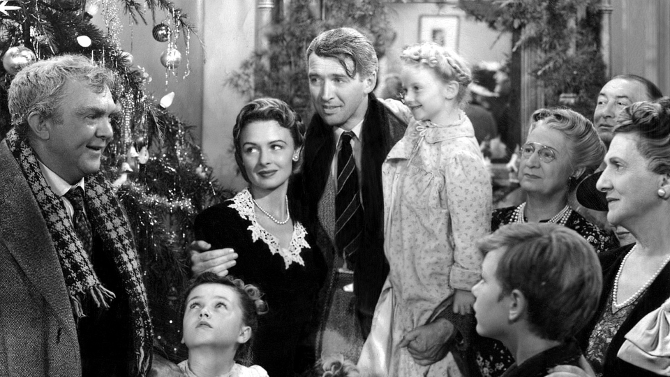
Murder ‘Mystery’
Sometimes a movie just doesn’t fit perfectly within its own genre... going against a few of the tropes that define what something is, all while hitting enough of them to still be what it is – confusing! That’s the case with this latter-day Italian giallo, Mystère... sometimes better known by its English title Dagger Eyes (1983). Co-written and directed by Carlo Vanzina, the film opens with a rather impressive, though more crime inspired assassination in Rome... resembling the real life John F. Kennedy car killing. It will start a chain reaction of murders that will rock the Eternal City.
-
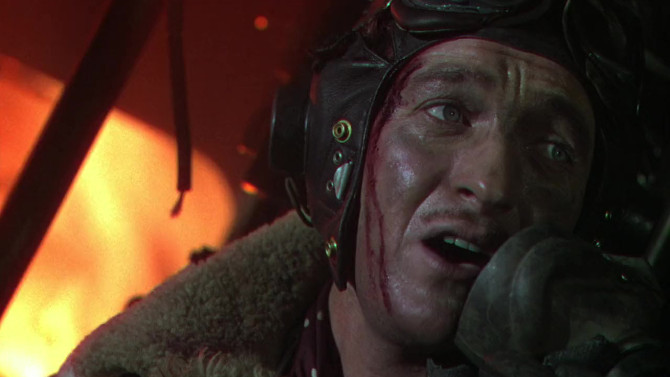
Stairway to Heaven
A Matter of Life and DeathJanuary 13, 2017Born out of the horrors of World War II, famed British filmmakers Michael Powell and Emeric Pressburger released A Matter of Life or Death one year after the conclusion of the hostilities. Cleverly evoking the complexities of the era, the writer/director team fuse together multiple themes that, in some way, make sense of love, life, death, Heaven and the wounds that soldiers suffered during the traumatic affair. Beginning on a grand celestial scale, we are brought forth to an intimate, heartbreaking moment when British Royal Air Force Squadron Leader Peter Carter (David Niven), after ordering his crew to bail out (letting them know that he will soon follow), reveals to an American radio operator, June (Kim Hunter), that his plane is crashing and he has no parachute. His smooth vocals, grievous situation and stiff upper lip attitude leave the woman distraught, and the two fall in love by way of the irregular circumstance. Leaving his dead friend Bob (Robert Coote) on the plane, Carter leaps into the pea soup thick fog just off the English coastline.
-
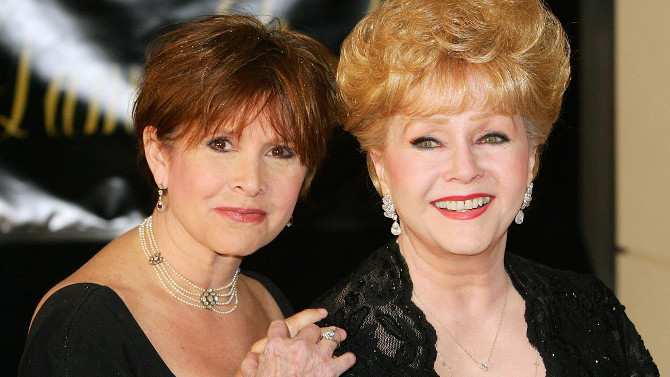
Ushering in 2017
January 10, 2017Here’s hoping that everyone has been enjoying the beginning of 2017. The end of last year was certainly a difficult one for us film fans, as we lost both Star Wars’ Carrie Fisher and her mother, icon Debbie Reynolds just one day apart. This followed the loss of so many other iconic actors, ranging from Alan Rickman (one of the best voices in the business) to Robert Vaughn (the last living member of The Magnificent Seven), and many, many more. Thankfully, we have their work to remind us of their amazing talents. Yet, it was not all doom and gloom – it was exciting to be able to witness two milestone birthdays, as two members of Hollywood royalty, Kirk Douglas and Olivia de Havilland, both turned one hundred this past year.
-
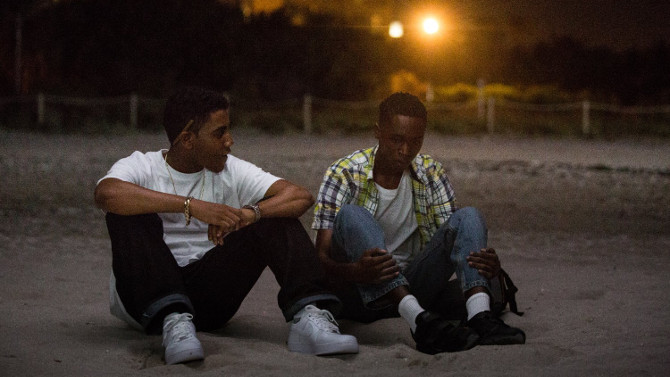
Moonlight Sonata
MoonlightJanuary 8, 2017Moonlight, one of the most lauded films of the year 2016, depicts a world that feels near inescapable. Set in an impoverished neighbourhood in Miami, our protagonist, a confused, introverted, gay African American boy named Chiron, is trapped in a world where his mother is a crack addict, his role model is the one selling the drugs to her, and he is brutally bullied for not fitting the mould. The film is broken up into three parts, ‘Little’, ‘Chiron’ and ‘Black’, each a name and iteration of the main character’s life. ‘Little’ (Alex Hibbert) is a shy young boy, introverted and different from those energetic, bombastic kids around him. His mother, Paula (Naomie Harris), is a verbally abusive single mother (though she has moments of maternal caring), stuck in an endless cycle of drug abuse. With no father at home, Little gravitates toward Juan (Mahershala Ali), as well as his girlfriend Teresa (Janelle Monáe). Juan is a drug dealer in charge of those selling on the street corners of the ghetto. A complex figure, he sees that the boy is different and truly wants to give him a hand up, yet is a huge part of the problem. Quiet moments of mentorship and advice abound, like when Little says he hates his mother. Juan, simply states "I bet you do. I hated my mom too. Miss her like hell now, though."
-
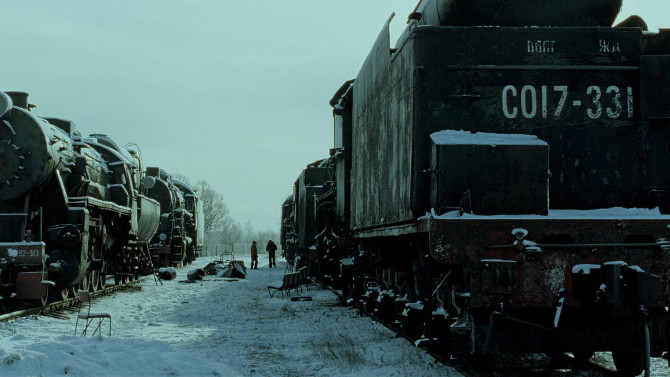
Run Off the Rails
TranssiberianJanuary 6, 2017A perfect film to watch as you hunker down on a cold, blustery winter’s night, 2008's Transsiberian, directed by Brad Anderson (The Machinist) follows a married American couple, Roy (Woody Harrelson) and Jessie (Emily Mortimer), as they take the Trans-Siberian Railway from Beijing, through Siberia, and ending in Moscow. A taut, tense traditional thriller, the couple, despite their recent charitable efforts (helping needy children in China), are having some relationship issues. With opposite pasts, Roy is an excitable, boyish man who has lived a good life, while his wife has been running from her demons, finally finding some semblance of normalcy after meeting him (they were thrown together by way of a serious car accident). At one point, Jessie ominously utters "kill off all my demons, Roy, and my angels might die, too" – a complicated warning for her do-gooder husband.
-
Star Pick with Sean Kenney
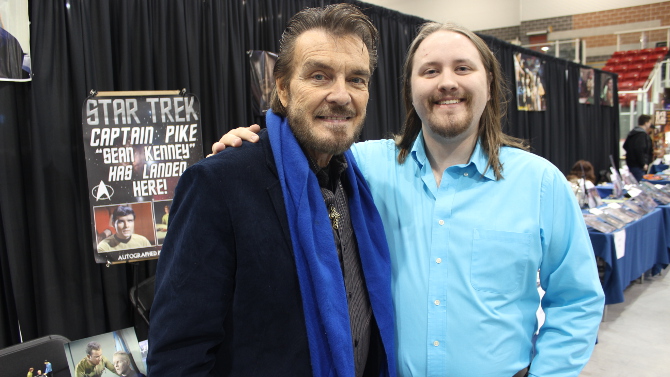 It’s a Wonderful Life is Heaven-SentIt's a Wonderful LifeDecember 23, 2016
It’s a Wonderful Life is Heaven-SentIt's a Wonderful LifeDecember 23, 2016It is hard to fathom that Frank Capra’s classic feature It’s a Wonderful Life turns 70 this year (on December 20th to be exact). A movie of vital importance to millions of people the world over, it has not only become a Christmas staple, but also a yuletide tradition for many a family, though this was not always the case. Getting off to a more than sluggish start (losing major money at the box office), it was not originally a hit (or believed by most critics that it would ever leave an impactful mark on the spools of film history). In a miracle befitting of the fantasy drama, the tides for the downtrodden film turned around in the 1970s (thanks to a fortunate copyright lapse), finding a more than accepting audience on the television screen. Taking off, it has gained the traction director Capra once had hoped for, for his story – though he never truly expected it to get a second chance. He actually said (to The Wall Street Journal in 1984): "It’s the damnedest thing I’ve ever seen. . .The film has a life of its own now and I can look at it like I had nothing to do with it. I’m like a parent whose kid grows up to be President. I’m proud. . . but it’s the kid who did the work. I didn’t even think of it as a Christmas story when I first ran across it. I just liked the idea."
-
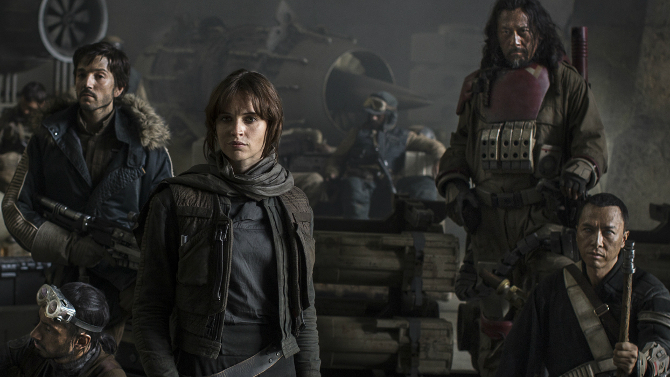
Going Rogue
Rogue One: A Star Wars StoryDecember 20, 2016The first stand-alone film in the Star Wars universe, Rogue One bridges the gap between episodes 3 (2005's Revenge of the Sith) and 4 (the original 1977 motion picture); it is also a movie that lives in the grey zone more than any other in the operatic space saga – depicting the complexity of the actions executed by the Rebel forces that are our protagonists. What we see is a complicated universe filled with spies, traitors and extremists – a place where no decision is an easy one. Our lead character, Jyn Erso (Felicity Jones), is a perfect example of this, for when she was young, her father, Galen (Mads Mikkelsen), a weapons developer, was forcibly taken by Imperial baddie Orson Krennic (Ben Mendelsohn) to finish work on the Death Star (the planet killer from A New Hope). This leaves the impressionable girl in the hands of a radical, ultra dangerous Rebel fighter by the name of Saw Gerrera (Forest Whitaker), who deserts her at the age of sixteen.

